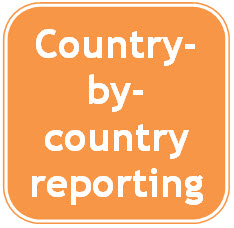 Christian Aid is launching a new phase of its Trace the Tax campaign for greater financial transparency by multinational companies.
Christian Aid is launching a new phase of its Trace the Tax campaign for greater financial transparency by multinational companies.
The charity is asking supporters to help persuade four firms to back its call for accounting reforms which will help poor countries collect more of the tax billions which are rightfully theirs.
All four have assets and subsidiaries in developing countries. They are: Vodafone, Unilever, TUI Travel (which owns Thomson and First Choice) and Intercontinental Hotels Group (which owns Holiday Inn).
Helen Collinson, Campaigns Manager at Christian Aid said: ‘We are appealing to these companies to support our campaign for greater tax transparency, including the call for a new accounting standard to ensure companies report on their profits made and taxes paid in every country where they operate. It is really important to stress that we are not accusing these companies of tax dodging.
‘We want them to become leaders in their sectors and to encourage other multinational companies to support the campaign. By doing this, they will help shape global tax reporting and play their part in fighting global poverty.’
Ms Collinson added: ‘We believe that greater tax transparency will be good for business and we are hopeful that these companies will agree with us. Taxes pay for roads and infrastructure essential to commerce. They create a healthy and educated workforce. Taxes also help to make governments more accountable and countries more stable — all of which would benefit companies doing business in developing countries.’
Christian Aid is encouraging supporters to send messages to the four FTSE companies on postcards and by video, asking them to back the campaign.
International organisations such as the Organisation for Economic Co-operation and Development (OECD) recognise that tax dodging is likely to cost developing countries more than the total that they receive in aid in each year. Christian Aid estimates that their annual loss may be as great as $160 billion.
Earlier this year, the charity contacted the CEOs of the FTSE 100 and asked them to complete a survey of their views about tax, development and country-by-country reporting - an accounting standard, which would require companies to be more open about their activities around the world.
The International Accounting Standards Board (IASB) is the body with the power to introduce country-by-country reporting. It is funded by the Big Four accountancy firms — PricewaterhouseCoopers, KPMG, Deloitte and Ernst & Young — which have significant influence.
Christian Aid has chosen the FTSE Four because each one is audited by one of the Big Four accountants. As well as asking the four companies to publicly support country-by-country reporting, Christian Aid is calling on them to ask their auditor to support it too.
Thanks for reading this post.
You can share this post on social media of your choice by clicking these icons:
You can subscribe to this blog's daily email here.
And if you would like to support this blog you can, here:



How can a multi-national objectively decide how much profit is made where? For example, if TUI fly to-and-from Ghana, how much profit (and tax) should be paid in Ghana? Surely it’s a matter of opinion.
@Stuart
Let’s start with where the plane is owned
And where the staff are engaged
And where the fuel is bought
And where the passengers book
And where the plane takes off and lands
And where it is serviced
And from where it is really managed
None of these happen nowhere
They all happen somewhere
And all give a clue as to where tax may be due
Formula apportionment of profits can allow for all these factors and more
The one person who should not decide is the company – because we want facts as the basis of tax – not the fiction they weave
Let’s start with where the plane is owned
OR LEASED FROM, OR REGISTERED OR STORED OVERNIGHT IF AT ALL
And where the staff are engaged
OR WHERE THEY LIVE OR ARE DOMICILED OR PERFORM THEIR WORK
And where the fuel is bought
OR USED
And where the passengers book
INTERNET, OFFSHORE CALL CENTRE
And where the plane takes off and lands
Don’t landing fees cover this?
And where it is serviced
ISN’T THIS TAXED ALREADY THROUGH VAT?
and from where it is really managed
‘REALLY’?
My only point is that globalisation is a complicated thing, and if you introduce rules like this then you may well change behaviours but I think that it’s highly unlikely that you’d get the outcome you’re expecting.
@Richard Murphy
OK, let’s try
Let’s start with where the plane is owned – INDIA
And where the staff are engaged – IN THE AIR
And where the fuel is bought – SAUDI ARABIA
And where the passengers book – EVERYWHERE
And where the plane takes off and lands – USUALLY 2 DIFFERENT COUNTRIES
And where it is serviced – FRANCE
And from where it is really managed – JERSEY
Now who the hell taxes the profits?
That the OECD recognise that tax dodging is likely to cost developing countries more than the total that they receive in aid in each year – and that this annual loss may be as great as $160 billion – is staggering.
Christian Aid’s “Trace the Tax” campaign for greater tax transparency and new accounting standards should be supported by all countries and companies not involved in manipulating tax payments via sleazy places masquerading as “offshore centres”, “secrecy jurisdictions” and “tax havens”
Close these places down before even more people are hurt by their evil practises.